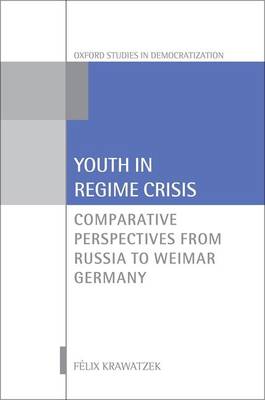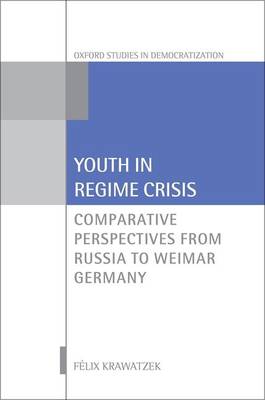
En raison d'une grêve chez bpost, votre commande pourrait être retardée. Vous avez besoin d’un livre rapidement ? Nos magasins vous accueillent à bras ouverts !
- Retrait gratuit dans votre magasin Club
- 7.000.000 titres dans notre catalogue
- Payer en toute sécurité
- Toujours un magasin près de chez vous
En raison de la grêve chez bpost, votre commande pourrait être retardée. Vous avez besoin d’un livre rapidement ? Nos magasins vous accueillent à bras ouverts !
- Retrait gratuit dans votre magasin Club
- 7.000.0000 titres dans notre catalogue
- Payer en toute sécurité
- Toujours un magasin près de chez vous
217,95 €
+ 435 points
Description
How do political regimes respond to the challenges emanating from youth mobilization? This book seeks to understand regime resilience and breakdown by analysing the public meaning of youth, as well as the physical mobilization of young people. Mobilization carried by young people is a key component in understanding the stabilisation of the authoritarian regime structures in contemporary Russia, but the Russian experience makes only sense if placed in its broader historical context.Three comparative cases, the breakdown of the authoritarian Soviet Union, the breakdown of the democratic Weimar Republic, and the crisis of the democratic regime in France around 1968 highlight how regimes which lacked popular support have compensated for their insufficient legitimacy by trying to mobilize youth symbolically and politically. This book illustrates the symbolic significance of youth and its role in regime crisis by analysing a new data set of newspaper articles with a new method of discourse analysis. The combination of qualitative interpretation and quantitative network analysis enables a deeper and more systematic understanding of discursive structures about youth. Through this methodological innovation the book contributes to the way we define the categories of youth, generation, and crisis. It makes the case that our conceptualisation should reflect the way terms are being used - usages that can be captured in a systematic way with new methods of discourse analysis. Oxford Studies in Democratization is a series for scholars and students of comparative politics and related disciplines. Volumes concentrate on the comparative study of the democratization process that accompanied the decline and termination of the cold war. The geographical focus of the series is primarily Latin America, the Caribbean, Southern and Eastern Europe, and relevant experiences in Africa and Asia. The series editor is Laurence Whitehead, Senior Research Fellow, Nuffield College, University of Oxford.
Spécifications
Parties prenantes
- Auteur(s) :
- Editeur:
Contenu
- Nombre de pages :
- 338
- Langue:
- Anglais
- Collection :
Caractéristiques
- EAN:
- 9780198826842
- Date de parution :
- 11-12-18
- Format:
- Livre relié
- Format numérique:
- Genaaid
- Dimensions :
- 163 mm x 236 mm
- Poids :
- 703 g

Les avis
Nous publions uniquement les avis qui respectent les conditions requises. Consultez nos conditions pour les avis.






